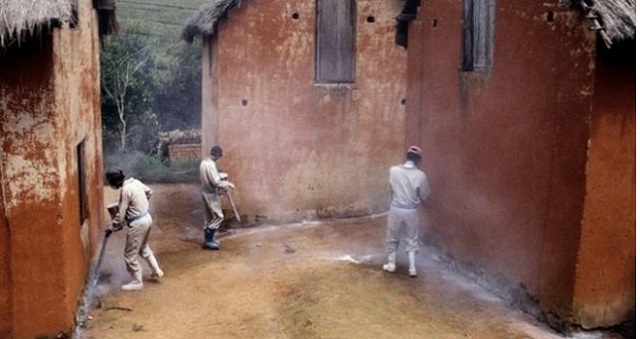
While cases of bubonic plague occur in Madagascar nearly every year, this year’s epidemic is “much more dangerous”, said Elhadj As Sy, secretary general of the International Federation of Red Cross and Red Crescent Societies (IFRC), from Madagascar.
This year, plague arrived earlier than expected, and has become much more contagious as it is now being transmitted from person to person through the air in its pneumonic form, as well as from animals to humans through infected flea bites in its bubonic form.
The infection is also spreading in urban centers and in areas that until now had not been affected, the World Health Organization (WHO) said this week.
47 killed in Madagascar wedding crash
IFRC staff on the ground say panic is exacerbating the stigma around the plague, Sy told the Thomson Reuters Foundation.
There is a risk this could “drive people underground and that may result in us losing some of the contacts we are tracing in order to contain the outbreak”, he warned. “Our volunteers are working in communities convincing people to seek help.”
The Red Cross is using burial practices that avoid contact with corpses and has opened a plague treatment center to help Madagascar tackle its worst outbreak of the plague this century.
The latest figures from Madagascar’s health ministry show there have been 911 recorded cases of the plague across 17 of the island nation’s regions since August, killing 95 people so far.
“The number of cases is growing by the day,” Sy told the Thomson Reuters Foundation, adding that the seriousness of the outbreak requires “great vigilance”.
The IFRC has introduced the same “safe and dignified” burial methods used in West Africa during the 2014-2016 Ebola epidemic, which are also being followed by the WHO and local government authorities to limit the spread of the plague.
Experience has shown such practices cut the chain of transmission, by preventing further infections through direct contact with corpses, while enabling families and relatives to bury their dead in line with local customs.
Hospitals in Madagascar are on high alert and are implementing preventative measures, medical staff said.
“We are limiting the number of visitors, and stipulating that all the health professionals wear a mask when they meet a patient,” said Mamy Randria, head of the clinic for infectious diseases at the public hospital of Befelatanana in Antananarivo.
“People are aware of the problem - they know that if you have a fever and have other symptoms, you need to seek medical attention,” he said by phone from Madagascar’s capital.
The IFRC, WHO and other international agencies are also providing ambulances to ensure patients with suspected cases do not spread the virus by taking crowded buses and taxis.
Another focus is on improving community surveillance, so as to detect infections earlier.
Sy said building partnerships and trust at the community level is critical, as well as reinforcing an existing referral system for suspected cases.
But overcoming the plague will require longer-term assistance, he emphasized – “not just intervening at the peak and then forgetting about it”.




1732875433-0/BeFunky-collage-(6)1732875433-0-165x106.webp)
1732874090-0/BeFunk_§_]__§-(1)1732874090-0.jpg)

1732865927-0/Untitled-design-(74)1732865927-0-270x192.webp)









COMMENTS
Comments are moderated and generally will be posted if they are on-topic and not abusive.
For more information, please see our Comments FAQ